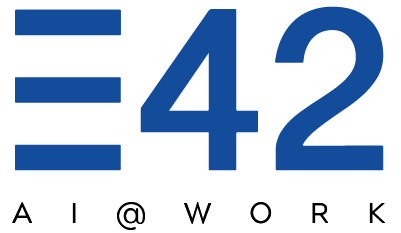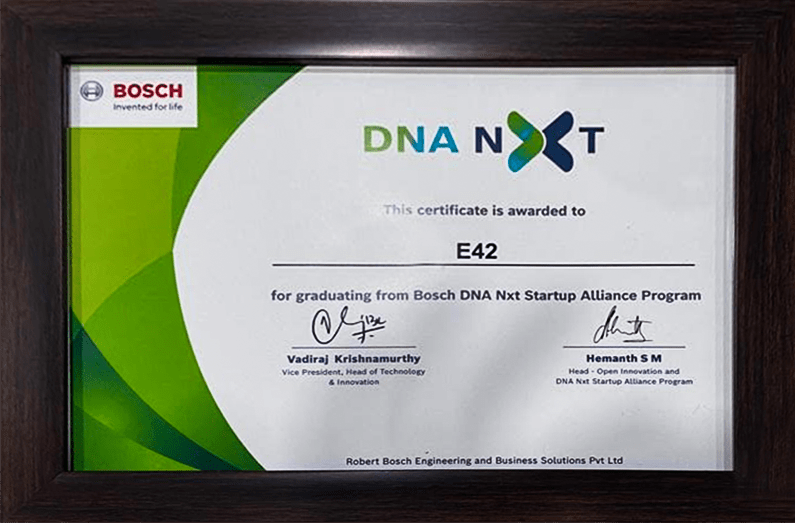Imagine a world where employees are not bogged down by mundane, repetitive tasks. A world where creativity and innovation are not stifled by the monotony of daily routines. This is not a utopian dream, but a reality shaped by Cognitive Process Automation (CPA). In the rapidly evolving digital landscape, CPA is emerging as a beacon of change fostering holistic enterprise process automation. It’s not just about automating tasks; it’s about transforming the very fabric of work, turning the mundane into the meaningful, and truly empowering employees in unprecedented ways.
The nature of work is not just changing, it’s evolving, transforming, and morphing into something more profound and impactful. Enterprise process automation is at the helm of this transformation. We’re referring to CPA-driven intelligent automation, which is smart, adaptive, intuitive, and customized to meet industry-specific demands. This isn’t your typical automation, it’s the automation of the future—one that not only performs tasks but also learns, evolves, and continually enhances itself.
Here’s what this article covers:
Defining Cognitive Process Automation
Cognitive Process Automation (CPA) represents a profound shift in the automation landscape. It’s not merely an advancement but a revolutionary approach. Picture it as an upgrade from a basic pocket calculator to a cutting-edge supercomputer. Both perform calculations, but CPA does so much more.
At its core, CPA integrates artificial intelligence (AI) and machine learning (ML). AI simulates human intelligence in machines, including learning, reasoning, problem-solving, and language comprehension via Natural Language Processing (NLP). CPA empowers automation systems to grasp intricate tasks, make decisions, and even learn from errors.
Empowering Employees Through Enterprise Process Automation
CPA is revolutionizing the workplace by automating repetitive tasks and eliminating the need for manual processes in activities like data entry. This technology leverages advanced algorithms and machine learning techniques to mimic human actions in executing non-subjective tasks, thereby freeing up employees to concentrate on more complex, high-value tasks that require human ingenuity and creativity.
By reducing the time spent on mundane tasks, CPA allows employees to focus on areas that foster skill development and promote career growth. This not only enhances job satisfaction but also increases productivity and efficiency within the organization. Moreover, CPA can be integrated with existing systems and applications, making it a versatile solution for businesses across various sectors. It can handle large volumes of data with precision, thereby reducing errors that are common in manual processes.
Employee Experience and Job Satisfaction
The enhancement of the employee experience and job satisfaction through the reduction of mundane tasks is a multifaceted process that involves several technical aspects.
- Efficiency through Automation: Cognitive Process Automation tools significantly reduce the time employees spend on repetitive tasks by using algorithms to replicate human actions, allowing employees to focus on more complex and engaging work.
- Employee Growth and Satisfaction: The shift in task allocation due to automation enables employees to engage in work that requires human skills such as critical thinking, creativity, and problem-solving, making their work more interesting and satisfying and providing opportunities for personal and professional growth.
- Quality and Productivity Enhancement: The use of enterprise process automation decreases human error common in manual data entry and repetitive tasks, resulting in higher quality work, increased productivity, and overall job satisfaction.
Augmenting Human Intelligence
CPA is a technology that augments, rather than replaces, human intelligence. It’s a collaborative relationship where CPA tools handles routine, repetitive tasks, and humans focus on tasks that require decision-making and critical thinking.
CPA is built on advanced algorithms and machine learning techniques. These algorithms are designed to mimic human actions in executing tasks, particularly those that are routine and repetitive in nature. This automation of tasks is achieved through a combination of Natural Language Processing (NLP) and Intelligent Character Recognition (ICR).
NLP allows the system to understand and interpret human language, enabling it to process unstructured data. ICR, on the other hand, is an advanced form of OCR that not only converts different types of documents into editable and searchable data but also can recognize different fonts and styles of handwriting.
While enterprise process automation takes over these routine tasks, humans are freed to focus on tasks that require human skills such as decision-making, critical thinking, and creativity. This is where the concept of ‘augmented intelligence’ comes into play. Instead of replacing humans, CPA enhances human intelligence by taking over tasks that humans find mundane and time-consuming.
New Roles and Opportunities
As we stand on the brink of a technological revolution, automation is significantly reshaping the professional landscape. It’s not just about machines taking over repetitive tasks, but a profound transformation that’s leading to the evolution of traditional job roles, necessitating upskilling and reskilling, and even creating entirely new roles. Let’s delve into how enterprise process automation is catalyzing these changes.

Addressing Concerns and Challenges
Automation brings about significant changes in the workplace, leading to concerns and challenges that need to be addressed. Here’s a concise overview:
- Job Displacement Fears: Automation may displace some jobs, but it also creates new ones. Upskilling and reskilling programs can help prepare employees for these new roles.
- Ethical Concerns: Automation raises ethical issues like privacy violations and decision-making biases. Transparency, regular audits, and ethical guidelines can help address these concerns.
- Supportive and Inclusive Work Culture: A supportive work culture that includes training programs, open communication about automation, and employee involvement in the automation process is essential.
Conclusion
Cognitive automation, a revolutionary force in the automation landscape, integrates advanced technologies to simulate human-like understanding, reasoning, and decision-making. By surpassing the constraints of traditional automation, it enables businesses to reach new heights of efficiency and productivity. The potential return on investment is significant, especially when considering the possibility of reclaiming a minimum of 100 person-days each month through the automation of processes like Accounts Payable with the help of AI co-workers. This not only enhances productivity but also fosters human-AI cooperation, allowing companies to fully leverage the benefits of enterprise process automation. This paradigm shift ushers in a new era of productivity and competitive advantage, preparing us for a future where humans and machines collaborate to achieve remarkable outcomes.
Make your Enterprise Intelligent with E42
E42 is a no-code Cognitive Process Automation (CPA) platform to create multifunctional AI co-workers that automate enterprise functions across verticals and domains ranging from automobiles and BFSI to telecom, manufacturing, and more. By maximizing efficiency and scalability, and minimizing the human workload, E42 is disrupting the enterprise automation space to deliver a hassle-free user experience. To kickstart your enterprise automation journey, write to us at interact@e42.ai!



